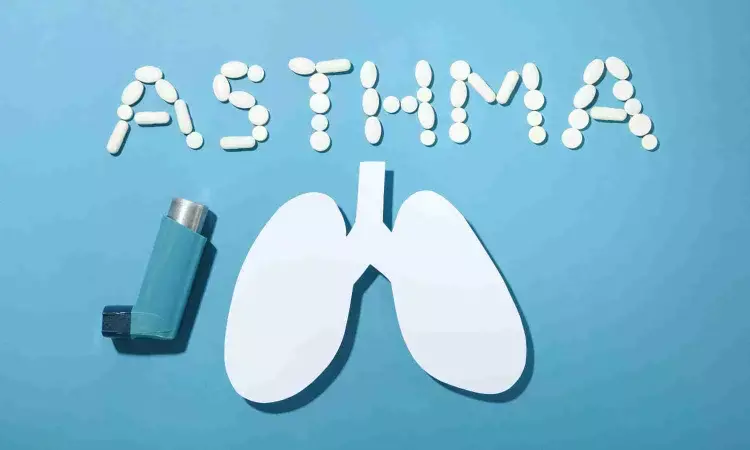- Home
- Medical news & Guidelines
- Anesthesiology
- Cardiology and CTVS
- Critical Care
- Dentistry
- Dermatology
- Diabetes and Endocrinology
- ENT
- Gastroenterology
- Medicine
- Nephrology
- Neurology
- Obstretics-Gynaecology
- Oncology
- Ophthalmology
- Orthopaedics
- Pediatrics-Neonatology
- Psychiatry
- Pulmonology
- Radiology
- Surgery
- Urology
- Laboratory Medicine
- Diet
- Nursing
- Paramedical
- Physiotherapy
- Health news
- Fact Check
- Bone Health Fact Check
- Brain Health Fact Check
- Cancer Related Fact Check
- Child Care Fact Check
- Dental and oral health fact check
- Diabetes and metabolic health fact check
- Diet and Nutrition Fact Check
- Eye and ENT Care Fact Check
- Fitness fact check
- Gut health fact check
- Heart health fact check
- Kidney health fact check
- Medical education fact check
- Men's health fact check
- Respiratory fact check
- Skin and hair care fact check
- Vaccine and Immunization fact check
- Women's health fact check
- AYUSH
- State News
- Andaman and Nicobar Islands
- Andhra Pradesh
- Arunachal Pradesh
- Assam
- Bihar
- Chandigarh
- Chattisgarh
- Dadra and Nagar Haveli
- Daman and Diu
- Delhi
- Goa
- Gujarat
- Haryana
- Himachal Pradesh
- Jammu & Kashmir
- Jharkhand
- Karnataka
- Kerala
- Ladakh
- Lakshadweep
- Madhya Pradesh
- Maharashtra
- Manipur
- Meghalaya
- Mizoram
- Nagaland
- Odisha
- Puducherry
- Punjab
- Rajasthan
- Sikkim
- Tamil Nadu
- Telangana
- Tripura
- Uttar Pradesh
- Uttrakhand
- West Bengal
- Medical Education
- Industry
Inflammatory cells remain in blood after treatment of severe asthma, suggests research

Biological drugs have improved the lives of many people with severe asthma. However, a new study from Karolinska Institutet in Sweden shows that some immune cells with high inflammatory potential are not completely eradicated after treatment.
Biological drugs (biologics) have become an important tool in the treatment of severe asthma.
“They help most patients to keep their symptoms under control, but exactly how these drugs affect the immune system has so far remained unknown,” says Valentyna Yasinska, consultant in pulmonary medicine at Karolinska University Hospital and doctoral student at Karolinska Institutet’s Department of Medicine in Huddinge.
In a new study published in the scientific journal Allergy, researchers at Karolinska Institutet have explored what happens to the immune cells of patients being treated with biologics. By analysing blood samples from 40 patients before and during treatment, they found that instead of disappearing during treatment, certain types of immune cell – which play a key part in asthma inflammation – actually increased.
“This suggests that biologics might not attack the root of the problem, no matter how much they help asthma patients during treatment,” says Jenny Mjösberg, professor of tissue immunology at Karolinska Institutet’s Department of Medicine in Huddinge. “Continued treatment might be necessary to keep the disease under control.”
The study is based on data from patients with severe asthma sourced from the BIOCROSS study. The researchers used advanced methods such as flow cytometry and single-cell sequencing to determine the properties and function of the immune cells.
“We were surprised to find that blood levels of inflammatory cells increased rather than decreased,” says Lorenz Wirth, doctoral student at the same department at Karolinska Institutet. “This could explain why inflammation of the airways often returns when the treatment is tapered or discontinued. It is important that we understand the long-term immunological effects of these drugs.”
Little is still known about the long-term effects of biologics like mepolizumab and dupilumab since they are relatively new, having been prescribed to asthmatics for less than ten years.
The next stage of the study will be to analyse samples from patients with a long treatment history and to study lung tissue to see how the immune cells are affected in the airways.
Reference:
Lorenz Wirth, Whitney Weigel, Christopher T. Stamper, Johan Kolmert, Sabrina de Souza Ferreira, Quirin Hammer, Maria Sparreman Mikus, High-Dimensional Analysis of Type 2 Lymphocyte Dynamics During Mepolizumab or Dupilumab Treatment in Severe Asthma, Allergy, https://doi.org/10.1111/all.16633
Dr Kamal Kant Kohli-MBBS, DTCD- a chest specialist with more than 30 years of practice and a flair for writing clinical articles, Dr Kamal Kant Kohli joined Medical Dialogues as a Chief Editor of Medical News. Besides writing articles, as an editor, he proofreads and verifies all the medical content published on Medical Dialogues including those coming from journals, studies,medical conferences,guidelines etc. Email: drkohli@medicaldialogues.in. Contact no. 011-43720751


